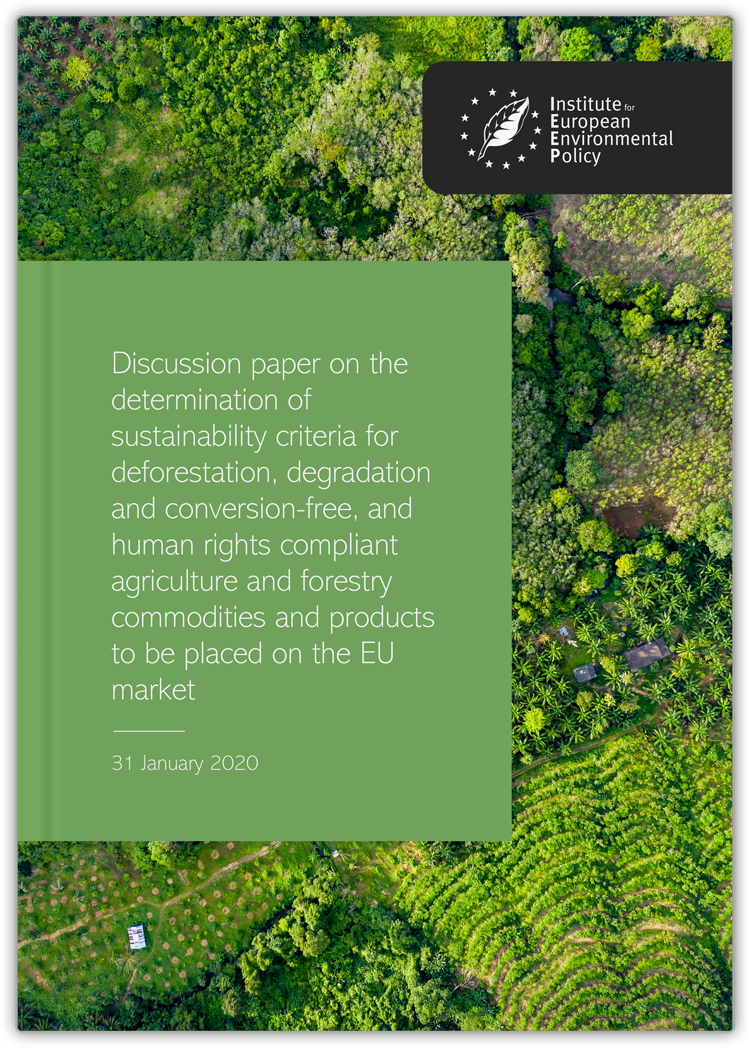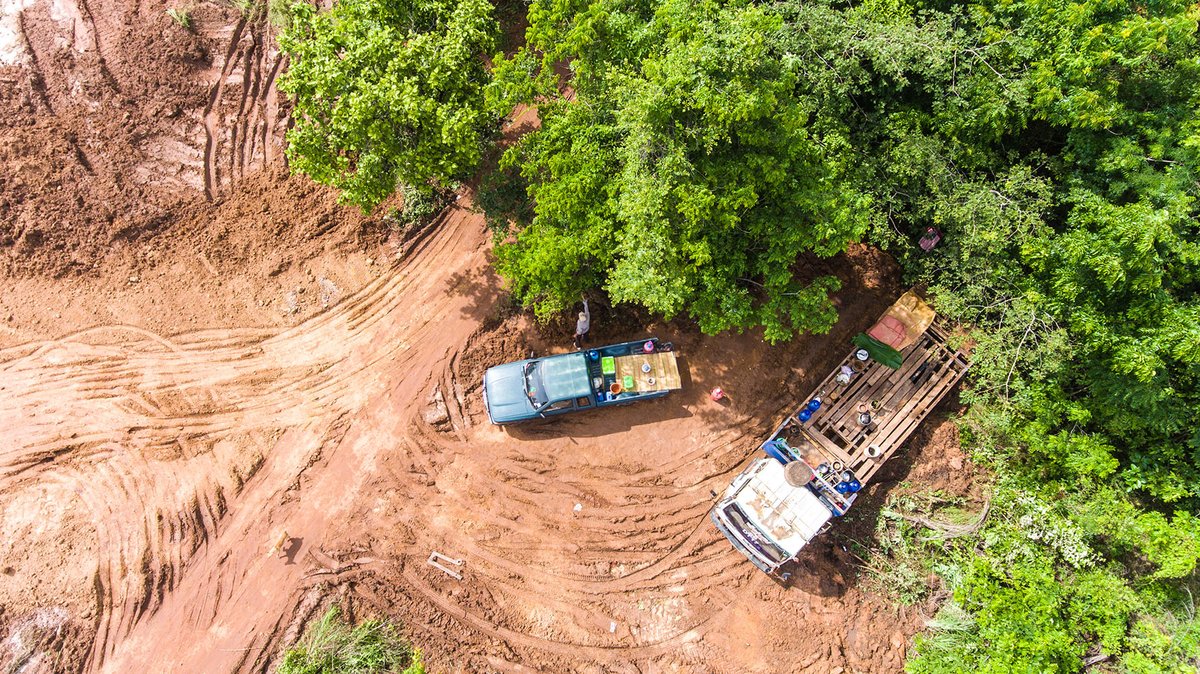In its efforts to deliver on the EU Green Deal and to step up EU action, the European Commission launched a public consultation on deforestation and forest degradation, open until 4 March 2020. The main aim was to assess the types of regulatory and non-regulatory measures to address these issues, with a legislative initiative expected to be rolled out in 2021.
IEEP welcomes the Roadmap as an acknowledgement that the European Commission needs to address deforestation and forest degradation through legislative measures. We welcome the recognition that the EU is a major importer of agricultural commodities and therefore part of the problem, but equally part of the solution to reduce global deforestation. The EC’s objective to address together the environmental, social and economic impacts linked to deforestation, as well as securing the respect of fundamental rights of local communities and indigenous peoples, is a good step forward.
Achieving a just transition for Europe as well as for countries beyond European borders, by setting a path for natural resource use that is economically, socially and environmentally sustainable, requires systemic change and transformative policies to promote a truly circular bioeconomy in Europe. In doing this, the EC needs to address the EU’s resource consumption and overall land demand as recognised in the EU Green Deal.
Based on the evidence gathered through work undertaken by IEEP, we encourage the EC to consider the following needs when assessing legislative measures to address deforestation and forest degradation:
 IEEP has designed sustainability criteria for addressing deforestation and forest degradation IEEP has designed sustainability criteria for addressing deforestation and forest degradation |
- A binding legislative measure to ensure that all commodities and products placed on the EU market avoid contributing to deforestation, forest degradation and ecosystem conversion. We believe that the EU should design sustainability criteria for this purpose, which should be complemented by clear and implementable definitions of ‘deforestation’, ‘forest degradation’ and ‘ecosystem conversion’, an appropriate base year for no land conversion, as well as appropriate instruments ensuring chain of custody and full traceability of products and/or commodities;
- Recognise the role of forests in general in relation to the EU’s ambition, not least biodiversity and climate action. Therefore, whilst the focus on preventing deforestation is necessary and urgent, it is also important to ensure that existing forests are managed in a way that also contributes to these objectives, including those in Europe;
- The implementation of EU Free Trade Agreements closely aligned with the measures aiming to prevent deforestation and forest degradation. Dedicated resources are needed to improve the effectiveness of Sustainable Development chapters within those agreements. Treatment of impacts of trade liberalisation in ex-ante and ex-post assessments of FTAs needs to be considerably improved;
- The empowerment of all EU actors along value chains to make sure there is a clear understanding as to the consequences of importing commodities and/or products causing deforestation in third countries. Equally, it is of utmost importance to use trade and development cooperation policies to support communities in third countries to shift to sustainable land and resource use practices or alternative means of livelihood, recognising that they are not a direct cause of deforestation but often victims of it.
IEEP’s response to the EC public consultation drew on a number of evidence-based papers, which can be found here and here. The response to this public consultation was compiled by Silvia Nanni, Ben Allen, Catherine Bowyer and Marianne Kettunen. For more information on IEEP’s work on this area, please contact Ben Allen (ballen@ieep.eu).


